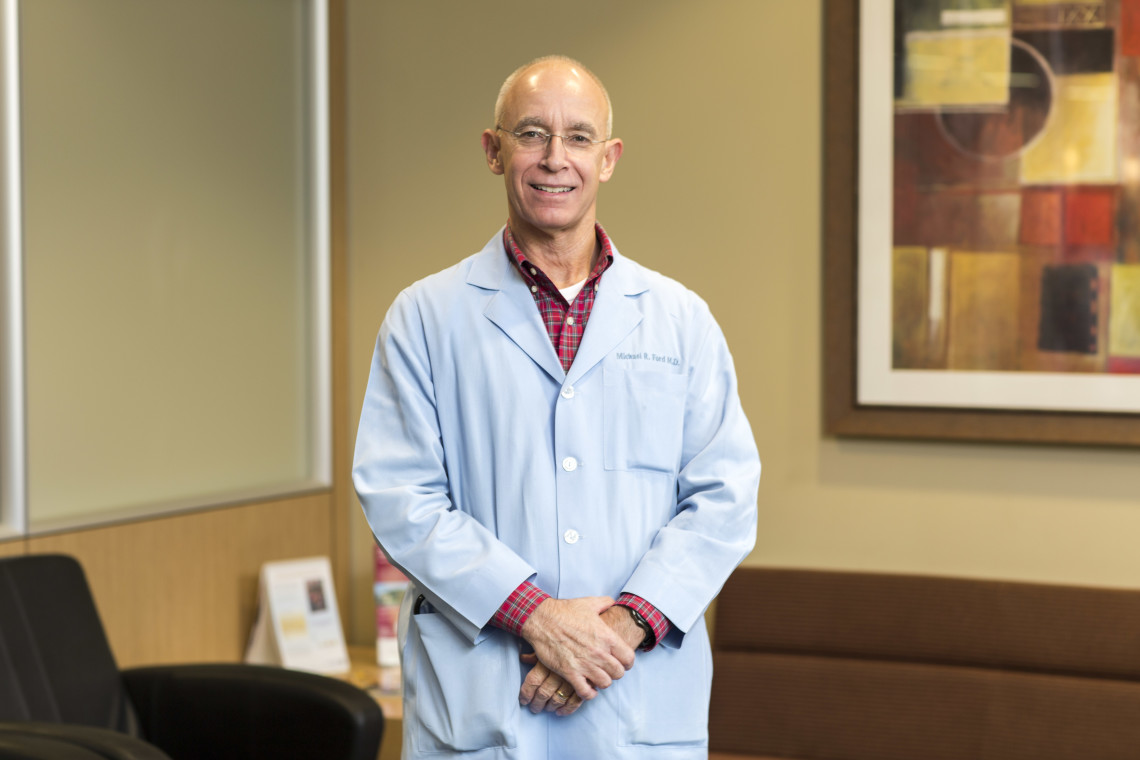Family Physician, Dr. Michael Ford, Brings Small Town Approach to All Patients
Dr. Michael Ford has seen many states and all kinds of patients. Born and raised in Russellville, Dr. Ford followed his interest in science to a career in family medicine with CHI St. Vincent in Little Rock.
Q: Where did you go to school?
A: I graduated from Arkansas Tech University with degrees in mathematics and chemistry. Afterward, I married and moved to Little Rock where I attended the University of Arkansas for Medical Sciences. I graduated there in 1982 then served in the U.S. Navy for six years. The first three of those years I spent at a naval hospital in Pensacola, Florida. That was where I began my residency in family medicine.
For my last three years in the U.S. Navy, my wife Shari and I moved to Cherry Point, North Carolina where I served as a family physician with the U.S. Marine Corps. Air Wing. When that was done, Shari and I moved back to Arkansas where we lived in Arkadelphia. There, we raised three sons, and I was in private practice with three other physicians for 25 years.
Q: What made you decide to join CHI St. Vincent and move to Little Rock?
A: Shari and I moved to Little Rock in 2013 primarily to be closer to our immediate family. I chose to be in family medicine because of the variety of medical conditions I deal with on a daily basis. I also enjoy the personal relationships a doctor develops with patients. I have been with CHI St. Vincent for almost three years now, and I like the administrative support this organization provides me. The most important aspect for my medical practice, however, is a strong network of specialty and primary care physicians, which is part of the CHI System.
Q: What is the most challenging part of being a physician?
A: The most challenging part of my practice is the variety of conditions I see. It is also very challenging to help patients with severe illnesses navigate a complex medical system.
Q: What is the most helpful thing a patient can do to help you diagnose him or her properly?
A: An accurate past medical history, accurate list of medications and family health history help me tremendously when assessing what symptoms a patient is experiencing.
Q: What one piece of advice would you give to someone to improve his or her health?
A: There is generally a lot of health advice I can give a patient, but the one bit of advice that can make long-term changes in longevity is to stop smoking.
This post is a collaboration with AY Magazine.

